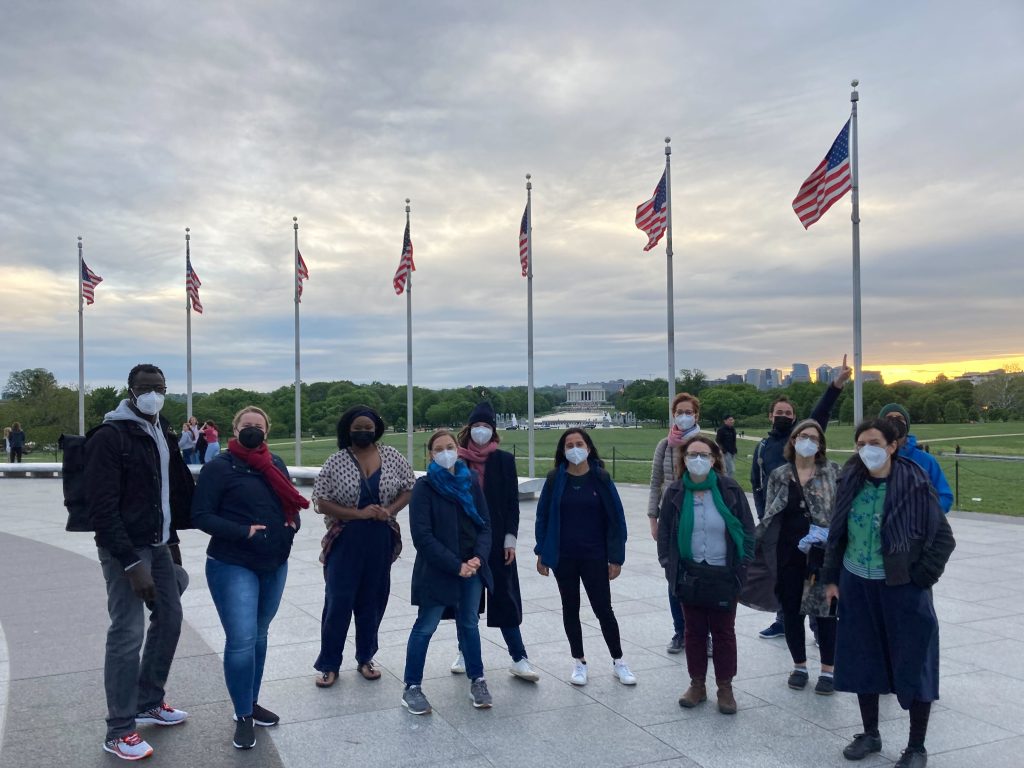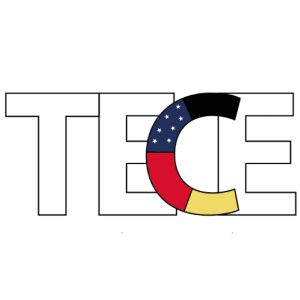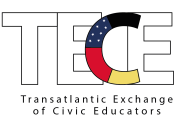

By Team TECE
In early May 2022, 22 fellows of the project the Transatlantic Exchange of Civic Educators (TECE) came together for a week of professional development, collaboration, inspiration and exchange in Boston, Massachusetts and Washington, DC, USA. Fellows were hosted by the TECE project partner in the USA, the Tisch College of Civic Life at Tufts University. After having met as a group for more than eight online sessions since July 2021 and in-person in Weimar and Berlin, Germany in November 2021, the group was able to deepen their work together during this second in-person encounter.
The primary objectives of this U.S. leg of the TECE experience were to:
- Get to know unique features of US civic life and civic learning (current trends/topics, challenges and interesting approaches)
- Critically question and spark new ideas based on a comparative, “outside” perspective from beyond our own national and sectoral contexts
- Pursue deeper relationships in order to prompt future partnerships
- Learn to communicate across differences to find innovative solutions to problems and challenges
- Build a network of support for future transatlantic civic youth work
After having focused on getting to know the German landscape of politische Bildung as a group in November 2021, the TECE project partners identified several aspects of civic learning in the US context that would be important to highlight, namely: anti-racism and memory work; youth voice; polarization and civic dialogue; and civic engagement and community organizing. Through the sharing of fellows’ own expertise and visits with external practitioners and experts, participants were able to better understand these concepts and different approaches to civic education work through experiential learning and dialogue. Among the organizations met with, were the Suffolk University Center for Community Engagement, SparkShare, the MIT Center for Constructive Communication, iCivics, the Maryland Lynching Memorial Project, Students Learn Students Vote Coalition, the National Park Service Boston’s Black Heritage Trail, and OpenMind.
Reflecting on these experiences in small groups allowed participants to explore the relevance of newly gained knowledge for their own work, deepen understanding and raise new questions. Overall, the opportunity to think about civic education broadly and see the many varied ways civic learning is achieved intends to raise essential questions about the work: what is civic education, who should be involved, how should it be done and what should it entail?
Another significant component of the TECE experience has been the four thematic working groups who have met independently across the year with the goal of pursuing an outcome and contribution to the theme chosen. The thematic work group topics selected by participants were: digitalization, youth empowerment, polarization, and historical-political education. The May meeting culminated in presentations from small groups on their final project outcomes and learnings. One thematic working group, for example, produced a video series with youth impressions from historical-political education work while another has drafted practitioner guidelines for creating empowering spaces for youth in youth work and civic spaces. Upon completion, these products will be available on the TECE website: www.tece-usde.org.
In addition to the concrete knowledge gained, participants noted how “transformative and re-energizing” the TECE experience has been, particularly given the ongoing challenges and fewer opportunities for professional connection due to the pandemic. As one fellow put it:
“Despite the myriad global challenges that await us, there are many dedicated people working hard to improve the lives of their community through their work in civic education and who take their work seriously. Especially with the program taking place during the pandemic, I did not know how uplifting and inspiring this [would be] or how energizing it [would be] to see these individuals (in-person or on Zoom) and to hear about their experiences and their work.”
As the TECE project comes to a close at the end of June 2022, another important goal of this time together in the U.S. was to coordinate next steps to maintain communication, realize joint projects, and maintain momentum. There is clearly interest and motivation on behalf of participants and others in the US and Germany in investing in a transatlantic exchange of civic learning. The TECE project, thanks predominantly to the engaged and motivated group of Fellows, has taken important first steps to investigating the viability and fruitfulness of US-DE transatlantic civic youth work.
